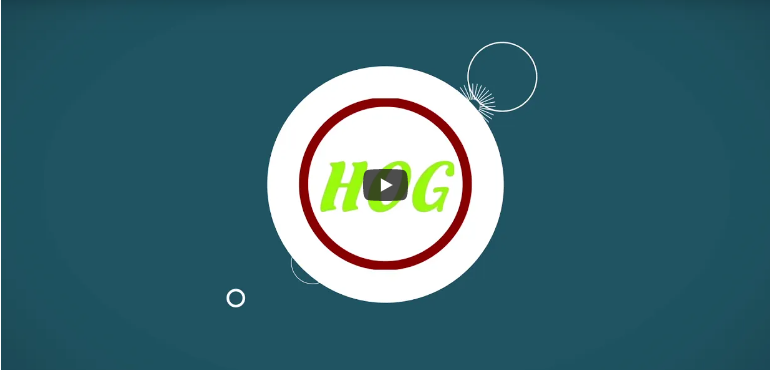Plumbing issues are an inevitable part of homeownership. While some problems can be fixed with basic DIY knowledge, others require the expertise of a professional plumber. Knowing when to handle a plumbing issue yourself and when to call in the pros can save you time, money, and frustration. In this guide, we'll explore the most common plumbing problems homeowners face and offer advice on when it’s best to call a professional plumber.
1. Dripping Faucets
a. The Issue
A dripping faucet is more than just an annoyance—it can also waste a significant amount of water. Even a slow drip can add up to gallons of water lost over time, impacting your water bill and the environment.
b. DIY or Professional?
DIY Fix: Dripping faucets are often caused by worn-out washers or seals. If you're comfortable disassembling the faucet and replacing these parts, you can likely fix the problem yourself. Call a Professional: If the faucet is old or you’re dealing with complex plumbing configurations, it’s best to call a plumber to avoid causing further damage.
2. Clogged Drains
a. The Issue
Clogged drains are one of the most common household plumbing problems, whether it’s in the kitchen sink, bathroom sink, or shower. Accumulation of hair, grease, soap scum, or food debris can cause the water to drain slowly or stop entirely.
b. DIY or Professional?
DIY Fix: For minor clogs, using a plunger, drain snake, or natural drain cleaner can often resolve the issue. Call a Professional: If the clog is recurring or affecting multiple drains in your home, this could indicate a larger problem, such as a blockage in the main sewer line, which requires professional help.
3. Running Toilets
a. The Issue
A running toilet can waste up to 200 gallons of water per day. It’s often caused by a malfunctioning flapper valve, which controls the flow of water from the tank to the bowl.
b. DIY or Professional?
DIY Fix: Replacing the flapper valve or adjusting the float can often resolve this issue. Call a Professional: If you've tried simple fixes and the toilet continues to run, or if there’s an issue with the fill valve or other internal components, it’s time to call a plumber.
4. Low Water Pressure
a. The Issue
Low water pressure can make everyday tasks like showering or washing dishes frustrating. It’s often caused by sediment buildup in pipes, a malfunctioning pressure regulator, or leaks.
b. DIY or Professional?
DIY Fix: If only one fixture is affected, the problem may be a clogged aerator, which can be cleaned easily. Call a Professional: If the low pressure is affecting multiple fixtures, it could be due to a leak or a problem with the main water line, which requires professional inspection.
5. Leaky Pipes
a. The Issue
Leaky pipes can cause water damage to walls, ceilings, and floors. Common causes include corrosion, high water pressure, or damaged seals.
b. DIY or Professional?
DIY Fix: Small leaks under sinks can sometimes be fixed by tightening connections or replacing worn seals. Call a Professional: If the leak is behind a wall, under a floor, or part of a more extensive piping system, it’s best to call a plumber to avoid extensive water damage and mold growth.
6. Water Heater Problems
a. The Issue
Water heaters can malfunction in various ways, from not producing enough hot water to leaking or making strange noises. These issues can be caused by sediment buildup, faulty heating elements, or a broken thermostat.
b. DIY or Professional?
DIY Fix: If your water heater isn’t producing enough hot water, you can try adjusting the thermostat. Also, draining the tank to remove sediment buildup is a simple maintenance task some homeowners can do. Call a Professional: For more complex issues, such as leaks, electrical problems, or complete unit failure, you’ll need the expertise of a plumber or a technician to diagnose and repair the water heater.
7. Sewer System Backup
a. The Issue
A sewer system backup is one of the worst plumbing issues a homeowner can face. It can cause raw sewage to back up into your home, creating serious health hazards. Backups can be caused by tree roots, blockages in the sewer line, or broken pipes.
b. DIY or Professional?
Call a Professional: Sewer system backups are not DIY-friendly. If you notice sewage backup in your drains, smell foul odors, or hear gurgling sounds from your toilets and drains, contact a professional plumber immediately.
8. Burst Pipes
a. The Issue
Burst pipes are a plumbing emergency that can cause significant water damage in a short amount of time. They often occur due to freezing temperatures, high water pressure, or corroded pipes.
b. DIY or Professional?
Call a Professional: Burst pipes require immediate professional attention. Shut off your home’s water supply to prevent further damage and call a plumber for emergency repairs.
9. No Hot Water
a. The Issue
Suddenly running out of hot water is a common issue, usually related to the water heater. This could be due to a faulty thermostat, a broken heating element, or the unit being too small to meet the household’s demands.
b. DIY or Professional?
DIY Fix: Check the thermostat and reset it if necessary. If you have a gas water heater, ensure the pilot light is on. Call a Professional: If the problem persists, call a plumber to assess the water heater and determine whether repairs or a replacement are needed.
10. Frozen Pipes
a. The Issue
In colder climates, pipes are prone to freezing during the winter months. When water inside a pipe freezes, it expands, putting pressure on the pipe walls, which can eventually lead to a burst.
b. DIY or Professional?
DIY Fix: You can try thawing frozen pipes by applying heat with a hairdryer or heating pad. Start at the faucet and work your way toward the frozen section. Call a Professional: If you can’t locate the frozen section or suspect the pipe has already burst, call a plumber immediately.
When to Call a Professional Plumber
While some plumbing problems can be handled with a few tools and a bit of patience, others require the skill and expertise of a professional. Here are some general guidelines for when to call a plumber:
- Persistent or Recurring Issues: If you’ve tried fixing a problem but it keeps coming back, it’s likely a sign of a deeper issue.
- Multiple Fixtures Affected: When multiple drains, toilets, or faucets are having issues simultaneously, it could indicate a more significant problem with your plumbing system or main sewer line.
- Visible Water Damage: Leaks that cause visible damage to walls, ceilings, or floors should be addressed by a professional to prevent further harm and potential mold growth.
- Sewer or Main Water Line Problems: Issues involving the main sewer or water lines are too complex for DIY solutions and require professional plumbing equipment and expertise.
Conclusion
While some plumbing issues can be resolved with DIY methods, many problems require the skills and tools of a professional plumber Monrovia CA. Knowing when to call a plumber can help you avoid unnecessary damage and ensure that your home’s plumbing system is in good working order. By recognizing common plumbing issues early and addressing them promptly, you can prevent small problems from turning into expensive emergencies.
























